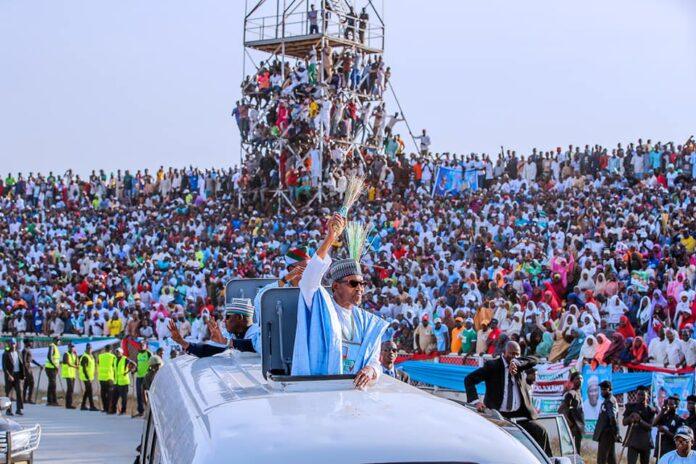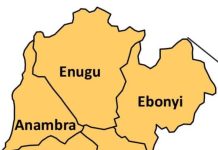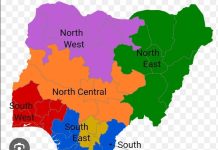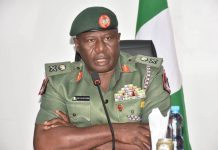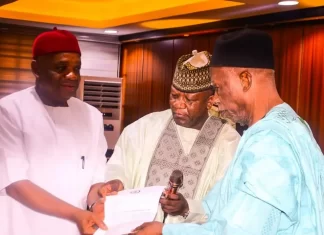Nigeria is not only dealing with the death of a former president in the wake of Muhammadu Buhari’s demise. A devoted group of more than 12 million Nigerians who viewed Buhari as more than just a politician but also as a moral role model and a messianic figure are quietly disbanding, or possibly reforming, a powerful political cult.
It was a stable basis of support for two election cycles. Rain or shine, national insecurity or economic hardship, they cast their ballots. They put up a defense. They thought. Buhari’s austere, orderly, and religiously based persona struck a profound chord in the northern heartland. Many saw him as Baba, a man of sacrifice, a mirror of their anguish, and a keeper of their dreams, rather than just Mai Gaskiya, or “the honest one.”
Now, the straightforward but important question is: Who gets this loyalty?
To presume that these 12 million Nigerians will merely switch to the ruling APC or mindlessly follow the next candidate from the north is to undervalue Buhari’s emotional and symbolic appeal. It was never simply the party that made him popular. Persona was the topic. No other northern politician in recent history, including Kwankwaso, Atiku, and any present governor, has been able to garner such admiration.
The vacuum is important.
The focus of Nigerian politics, particularly since 1999, has frequently been “structures.” However, Buhari’s foundation went beyond just structure. It was identity, memory, and sentiment. It created a powerful mystique by combining his religious respectability, his military experience, and his apparent thrift. The legend persisted even after his rule deteriorated. To vote for that myth, people waited in line for hours.
And now, who enters that area?
Bola. Ahmed Tinubu does not have the same emotional clout as Buhari in the north, even if he currently controls Aso Rock. His political power is found in machinery rather than mythology. Despite his many years of desire, Atiku Abubakar has consistently fallen short of Buhari’s ability to unify the trust of the northern populace. The Kwankwasiyya is a Kwankwaso movement, but it is still regional in nature and more of a Kano cult than a northern one.
Is it possible for Peter Obi, the 2023 surprise force, to get traction here? Perhaps. Early Buhari storylines are echoed by his emphasis on caution, anti-corruption rhetoric, and outsider status. However, it is also unclear if Obi can emotionally and culturally relate to Buhari’s supporters, who frequently associate political trust with shared symbols, geography, and religion. Perhaps a few viral videos in the Arewa dialect won’t cut it.
Instead of a transfer, Buhari’s passing might instead signal the start of a political dispersal. His supporters might go their separate ways; some might become indifferent, some might form new coalitions, and some might become conservatives driven by nostalgia as they wait for the next “pure” leader to come along.
Read Also: Breaking: Court Clears Fayose of Money Laundering Charges
This disarray has the potential to change 2027 politics. Northern voters may no longer cast their votes in unison if Buhari is not a unifying figure. Those in positions of authority who previously depended on Buhari’s reputation might now find the situation less stable.
This presents both risk and opportunity for Nigeria.
Risk, as opportunism, discord, and manipulation are frequently encouraged by power vacuums. But also the chance to create a new politics based on principles, norms, and responsibility rather than personality cults.
The importance of emotional politics in Nigeria, however, should not be minimized. It’s possible that Buhari’s legend may endure beyond his time in office. Similar to Zik in the east or Awolowo in the southwest, Buhari’s legacy in the north may serve as a benchmark for many years to come. Any successor’s task is not only to carry on his legacy, but also to earn the same level of confidence.
His 12 million supporters remain politically orphaned for the time being. In Nigerian politics today, one of the most crucial concerns is whether they find a new home or become the swing force that determines the outcome of the next election.
Olu Allen, a Kano resident, is a writer and teacher. He provides insight on Nigerian politics, society, and culture.
Join Television Nigerian Whatsapp Now
Join Television Nigerian Facebook Now
Join Television Nigerian Twitter Now
Join Television Nigerian YouTUbe Now

